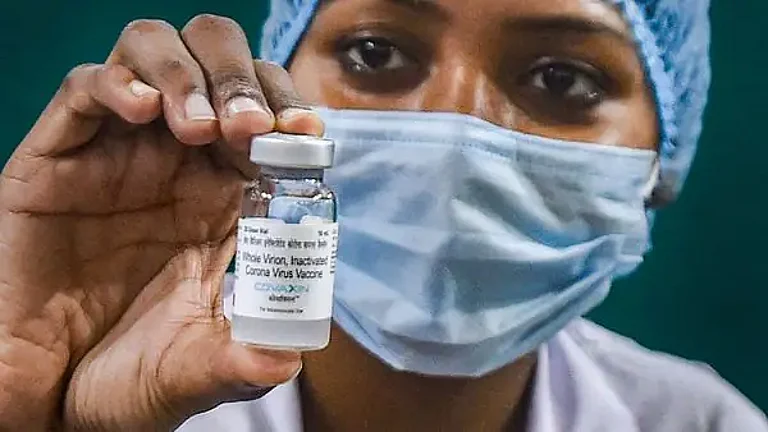Days after a Banaras Hindu University study said that takers of Bharat Biotech's anti-Covid vaccine, Covaxin, have been facing 'health issues' after one year of vaccination, the Indian Council of Medical Research (ICMR) on Monday distanced itself from the "poorly designed" study.
Director General of ICMR, Dr Rajiv Bahl, told news agency ANI that the BHU study on Covaxin side effects "erroneously" acknowledges the council. "ICMR cannot be associated with this poorly designed study which purports to present a ''safety analysis" of Covaxin," Bahl said.
The anti-Covid-19 vaccine, Covaxin, was developed by Bharat Biotech in collaboration with the Indian Council of Medical Research - National Institute of Virology.
ICMR has written a letter to the authors of the BHU study and the editor of the journal -- Springer Nature -- to immediately remove the acknowledgment to ICMR and publish an erratum, which is a corrected error.
Last week, the BHU report showed that nearly 30 per cent of the individuals who received Bharat Biotech's anti-Covid vaccine, Covaxin, complained of health issues during the one-year follow up study.
Conducted by a team of researchers at BHU, the study said that nearly one-third of the Covaxin takers reported 'adverse events of special interest' (AESI). The complaints of health issues were predominated by viral upper respiratory tract infections.
The study -- which took into account long-term safety of the BBV152 vaccine in adolescents and adults, claimed that serious AESI including stroke and Guillain-Barre syndrome were reported in one per cent individuals.
As many as 926 participants, including 635 were adolescents and 291 adults, were part of this study conducted between January 2022 and August 2023.
With the majority of AESIs persisting for a significant period, extended surveillance of COVID-19-vaccinated individuals is warranted to understand the course and outcomes of late-onset AESIs, the study underlined.
The study revealed that adults with co-morbidities had more than two times higher chances of AESIs and persistent AESIs.
Earlier in the month, amid the row over UK-based pharmaceutical giant AstraZeneca's admission over its vaccine, Covishield, Bharat Biotech had said that Covaxin was developed with a single-minded focus on safety first, followed by efficacy.
The developer of Covaxin had pointed out that its vaccine was the only anti-Covid vaccine in the government's Covid-19 immunisation programme to have conducted efficacy trials in India.
"Safety of Covaxin was also evaluated by the Ministry of Health, Government of India. Ongoing safety monitoring (pharmacovigilance) was continued throughout the product life cycle of Covaxin," Bharat Biotech had said.























